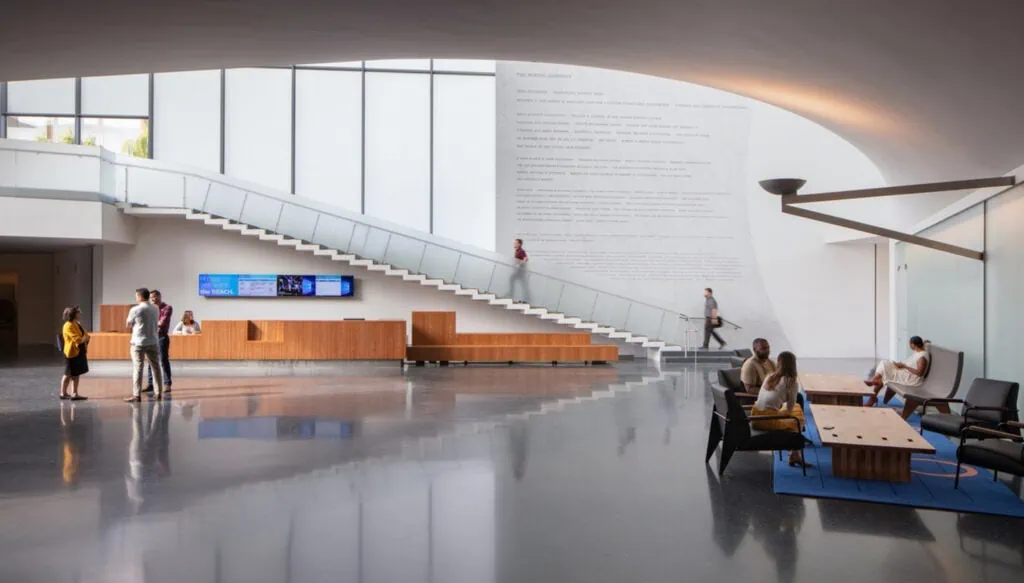
The John F. Kennedy Center for the Performing Arts: Bringing a 20th Century Icon into the 21st Century
The John F. Kennedy Center for the Performing Arts in Washington D.C. is recognized as one of the world’s leading cultural institutions. When the client embarked on the REACH, an ambitious expansion of the stately presidential center, they tapped Bruce Mau Design to work closely with Steven Holl Architects to develop the signage and environmental graphics program.
The 72,000-square-foot extension is comprised of three pavilions that house educational, rehearsal and performance spaces. The site also includes an integrated green roof that hosts outdoor performances and activities.

Building upon the community-centric programming and innovative architectural design for the REACH, our work began with defining the wayfinding strategy and developing clear and thoughtful information hierarchies and nomenclature across a complex campus.


We developed signage elements that complement the tactility and elegance of the architecture, pairing stainless and blackened steel with the different tonalities of wood and concrete. The extruded letterforms are responsive to lighting that changes throughout the day.


BMD also developed a comprehensive donor recognition system ranging from acknowledgment of support for individual spaces to large-scale installations celebrating multiple supporters.

“BMD’s work strikes the perfect balance between logic and beauty.”Tom Whitaker, Project Director, the REACH

